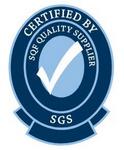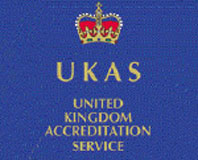Click HERE To Buy Fildena Online ↓
 Fildena and Alcohol: What Happens When Mixed?
Fildena and Alcohol: What Happens When Mixed?
How Fildena Works Inside Your Body
Once Fildena enters your bloodstream, it carefully blocks an enzyme called PDE5. This process relaxes certain blood vessels in the body, allowing more blood to flow to specific areas, especially during sexual stimulation. As a result, users may notice a firmer and longer-lasting erection, which can boost confidence and intimacy. The medication’s effects typically begin within 30 to 60 minutes, depending on metabolism and food intake. It’s important to understand that arousal remains necessary for the medication to work. Individual responses can vary due to factors like age, overall health, and other medications being taken at the same time.
| Key Effect | Details |
|---|---|
| Enzyme Blocked | PDE5 |
| Onset Time | 30–60 minutes |
| Primary Result | Increased blood flow |
What Happens When You Drink Alcohol

When you consume alcohol, it quickly enters your bloodstream and begins to affect your central nervous system. At first, it may create a sense of relaxation or euphoria, lowering inhibitions and making social interactions feel easier. However, as blood alcohol levels rise, it can slow your heart rate, impair judgment, and reduce your body's coordination.
Alcohol also acts as a vasodilator, which means it widens blood vessels and lowers blood pressure. This effect can feel mild with only one or two drinks, but becomes more pronounced as you drink more, potentially causing lightheadedness or dizziness.
When considering medications like fildena, it's important to understand that alcohol can influence your body’s ability to process drugs. This interaction may increase potential side effects, making it vital to think carefully about your choices.
Mixing Fildena and Alcohol: the Science
When fildena enters your bloodstream, it works by increasing blood flow to certain areas of the body. Alcohol, on the other hand, acts as a depressant to the central nervous system, often causing blood vessels to dilate and lowering blood pressure. When taken together, these two substances can interact in unpredictable ways inside the body.
The combination may intensify certain side effects, such as dizziness, headaches, or flushing, making some activities riskier. In some cases, alcohol can also reduce the effectiveness of fildena, making it more challenging to achieve the desired results.
Understanding these interactions highlights the importance of using both substances responsibly, keeping your health and safety in mind.
Common Side Effects to Watch Out for

When taking Fildena, your body undergoes a range of physiological changes that can sometimes lead to mild but bothersome reactions. Some men report experiencing headaches or flushing as their blood vessels relax, while others notice nasal congestion or an upset stomach. Dizziness or visual disturbances, such as a bluish tinge to vision, are also occasionally described. These effects typically fade as the medication leaves your system, but being aware of them helps you prepare and respond appropriately if they occur.
Adding alcohol to the mix can heighten your chances of experiencing these symptoms. Both Fildena and alcohol can lower your blood pressure, which may make you feel lightheaded or unusually tired. Recognizing these body signals early allows you to pause and seek guidance, ensuring your experience with Fildena remains comfortable and safe.
Risks and Potential Health Complications
Mixing Fildena with alcohol may seem harmless, but it can increase the chances of unexpected complications for your health. Alcohol is known to lower blood pressure, which, when combined with Fildena’s effects on circulation, can sometimes cause dizzy spells, fainting, or even heart palpitations. Individuals with underlying cardiovascular conditions should be especially cautious, as the risk of heart-related events may climb when both substances are present.
Beyond cardiovascular concerns, combining alcohol and Fildena might intensify side effects like headaches, flushing, or nausea. These symptoms can be unsettling and may discourage individuals from seeking further treatment options. Additionally, alcohol can dull your sexual response, potentially reducing Fildena’s effectiveness and leading to frustration or disappointment.
Understanding these possible risks ensures that you can make informed and safer choices about your health and wellbeing. Here is a quick summary:
| Potential Issue | Why It Happens | Impact |
|---|---|---|
| Low Blood Pressure | Combined vasodilator effects | Dizziness, fainting |
| Heart Strain | Increased cardiovascular load | Palpitations, chest pain |
| Reduced Effectiveness | Alcohol lowers sexual response | Less satisfactory results |
Expert Tips for Safe, Responsible Usage
Navigating the use of Fildena alongside alcohol requires a careful approach. Begin by paying close attention to your body’s responses, as individual reactions can vary widely. It’s best to limit alcohol intake when planning to use Fildena, as excessive drinking can increase the likelihood of unwanted side effects.
Consulting with a healthcare provider should always be the first step, especially if you have other underlying health conditions. They can offer tailored advice, ensuring both safety and effectiveness. Remember to prioritize hydration—water is your ally for flushing out toxins and supporting your body.
Lastly, avoid mixing these substances on an empty stomach, and monitor for any warning signs.





















